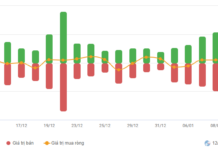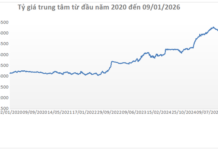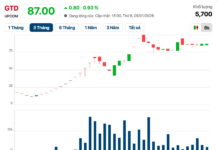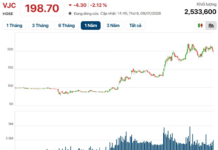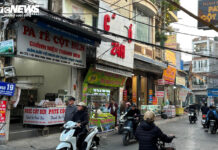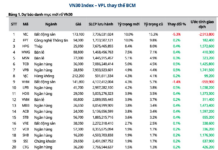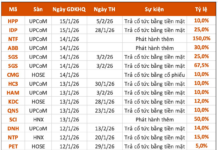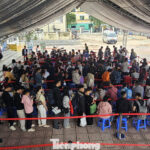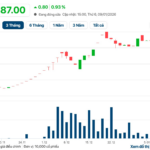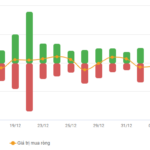The Vietnamese government has issued Decree 302/2025/NĐ-CP, detailing the National Housing Fund and the implementation of Resolution 201/2025/QH15 by the National Assembly on special mechanisms for social housing development. The Central Housing Fund, established under the Ministry of Construction, and local housing funds managed by provincial People’s Committees, aim to address housing needs effectively.
Enhancing Organizational and Operational Capacity
These funds operate as public service units with legal status, independent accounting, and bank accounts at the State Treasury or commercial banks. Provincial authorities can establish, reorganize, or assign existing funds, ensuring compliance with legal regulations.
Their primary mission is to develop social housing for rent, catering to public demand. Funds can invest in social housing projects with integrated technical and social infrastructure, repurpose public assets for rental housing, and purchase social housing from developers.
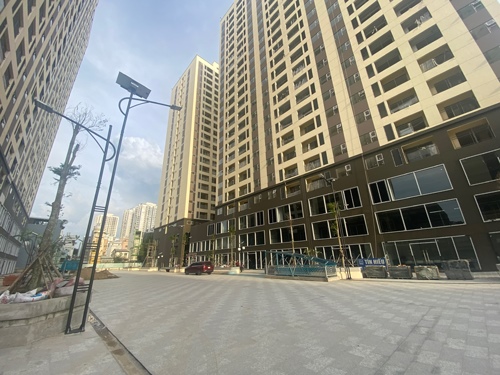
The Ly Thuong Kiet Social Housing Project (Dien Hong Ward, Ho Chi Minh City), comprising 1,254 apartments, is nearing completion. Photo: QUOC ANH |
Additionally, funds can commission or receive housing from state-owned enterprises, accept resettlement housing or donations, and purchase commercial housing for rental to government employees and workers.
Funds are responsible for managing and operating their housing portfolios, ensuring rentals align with mechanisms, target groups, and welfare goals.
Dr. Huynh Phuoc Nghia, a lecturer at the University of Economics Ho Chi Minh City (UEH), notes that Decree 302/2025/NĐ-CP provides clear operational and organizational frameworks for the National Housing Fund. However, success hinges on organizational and management capabilities. As financially autonomous public entities, these funds require skilled personnel, strategic planning, and inter-sectoral coordination. “A robust mechanism alone is insufficient; competent execution is crucial,” he emphasizes. Granting funds appropriate recruitment authority could attract top experts, enhancing efficiency, transparency, and sustainability.
Dr. Nghia highlights that Vietnam’s housing fund model resembles successful ones in Singapore and South Korea. Singapore’s housing agencies, operating autonomously with access to land resources, supply 50-60% of the housing market. Vietnam’s funds can utilize state-planned land, collaborate with the private sector, and access commercial bank loans—a more flexible approach than many European models reliant on private capital. “With proper implementation, the fund could significantly impact diverse housing segments, from social housing and worker dormitories to specialized housing like government quarters or disaster relief shelters. Collaboration with local authorities could support temporary housing, resettlement, and landslide-prone area residents,” Dr. Nghia explains.
Focusing on Rental Projects
Cao Thi Thanh Huong, Senior Manager at Savills Vietnam’s Research Department, underscores the success of housing funds in Singapore and South Korea, offering low-interest, long-term loans to citizens and investment incentives to developers. This mutually beneficial model supports buyers financially while motivating developers to build affordable housing, fostering market stability.
Le Hoang Chau, Chairman of the Ho Chi Minh City Real Estate Association (HoREA), anticipates that the National Housing Fund will diversify capital sources for social housing. Developers will gain stable financing, enabling reasonable housing prices for genuine buyers. This supports the government’s goal of developing one million social housing units.
Chau adds that the fund will provide clean land for social housing projects, reducing costs and project timelines. Developers can also partner with the fund for long-term land and resource planning.
Dr. Pham Viet Thuan, Director of the Ho Chi Minh City Institute for Natural Resources and Environment, observes that urban workers, low-income earners, and industrial laborers often struggle to find suitable housing. He advocates for a build-own-rent model, which the National Housing Fund embodies, for sustainable impact.
Funds can proactively develop land, invest in infrastructure, and construct rental social housing in high-demand areas near industrial zones. “This model reduces speculative purchases and ensures housing serves those in need,” Dr. Thuan notes.
He stresses that stable, affordable housing is a universal aspiration for low-income workers. Professionally managed social housing rentals, priced below private rooms, can improve living standards for hundreds of thousands of families, easing urban living pressures.
However, eligibility criteria for rentals must be clearly defined to avoid deviating from the fund’s core mission of providing basic housing for workers.
|
A Tool to Stabilize Property Prices Dr. Pham Viet Thuan hopes the National Housing Fund will receive adequate authority and resources, including preferential loans, land access, and fee waivers. This would not only support vulnerable groups but also stabilize property prices. “Amid rising construction and material costs, the Prime Minister’s decision to establish the fund for rental social housing and worker accommodations is a positive step. It will act as a crucial tool to moderate property price increases,” Dr. Thuan concludes. |
SƠN NHUNG – LINH ANH
– 04:00 25/11/2025
Priority Applicants for Social Housing: No Lottery Required
Not everyone purchasing social housing needs to participate in a lottery to secure a unit. Certain priority groups are eligible for direct approval, bypassing the unpredictable lottery process.
Surpassing iPhone: Familiar Chinese Smartphone Brand Unexpectedly Claims Vietnam’s No. 2 Market Spot
This leading Chinese tech brand has solidified its position as the second-largest smartphone player in Vietnam, capturing an impressive 19% market share, trailing only behind Samsung.

